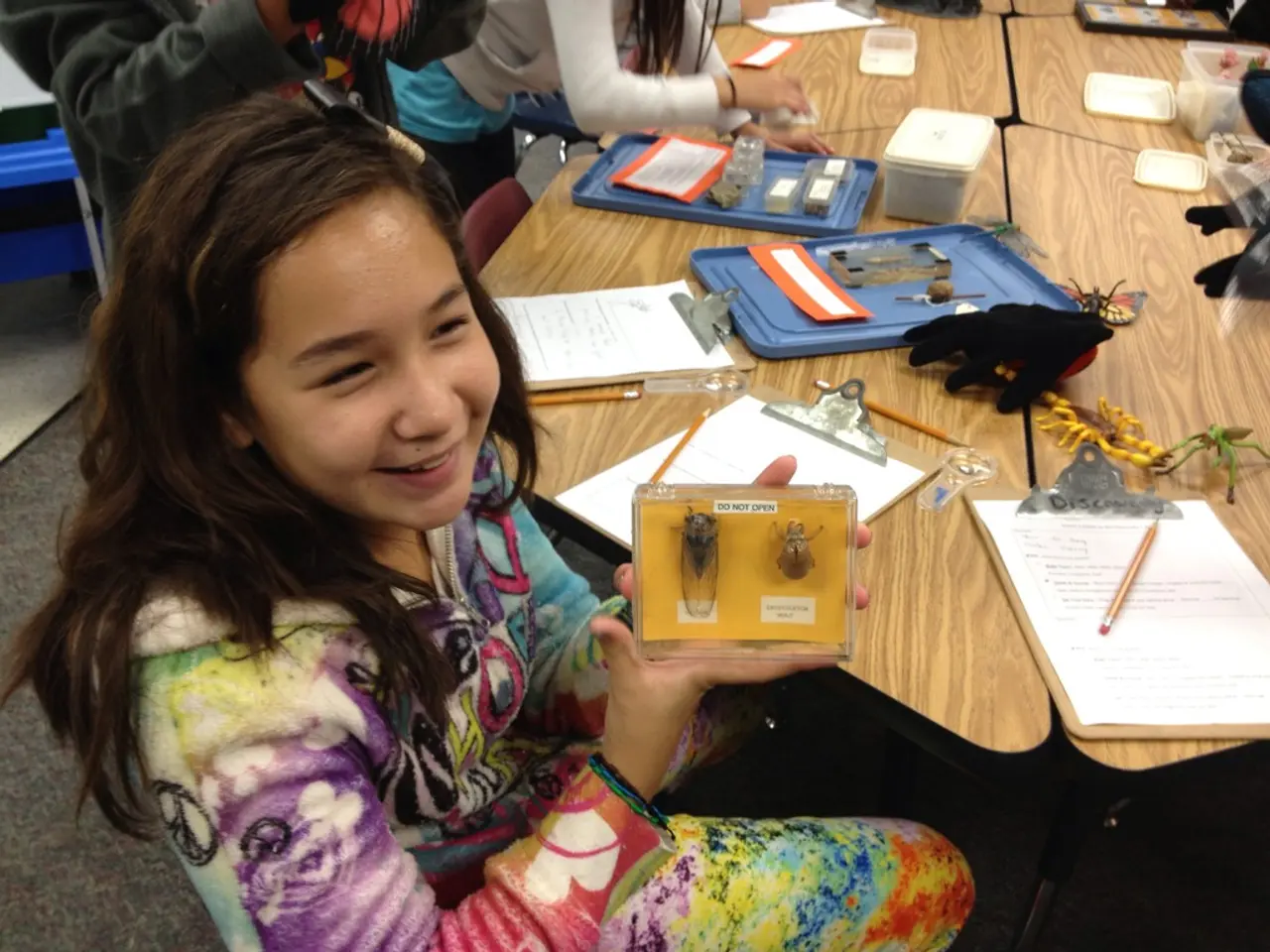Merging Study Data Organization in Chemistry Experiments
In a significant stride towards fostering a culture of responsible data management in academia, RWTH Aachen University in Germany has integrated Research Data Management (RDM) into its chemistry curricula for upper-division undergraduate students. This innovative approach, recently published in the Journal of Chemical Education, offers a promising blueprint for other institutions seeking to adopt a similar strategy.
The RWTH Aachen University's approach centres around the use of an electronic laboratory notebook (ELN) in a lab course and providing learning materials on RDM. By encouraging students to document their experiments electronically, the university aims to instil the importance of maintaining a structured record of research findings and data.
One of the key components of the RWTH Aachen University's approach is the development and implementation of data management plans as part of students' experimental projects. This involves planning how data will be collected, stored, and shared, which is a crucial aspect of RDM.
Moreover, the university teaches students to use electronic research notebooks (ERNs) to organise and document their research. This facilitates a more efficient and structured approach to managing experimental data, and it also ensures that findings can be easily accessed and reviewed.
Integrating modules on data analysis and visualisation into the curriculum is another crucial aspect of the RWTH Aachen University's approach. This equips students with the skills necessary to process and interpret chemical data effectively, thereby enhancing their ability to manage and present data in a meaningful way.
Collaborative projects are another integral part of the RWTH Aachen University's approach. By working together, students learn the importance of shared responsibility for data management, fostering a collaborative and team-oriented approach to research.
In addition, the university incorporates exercises where students search and analyse scientific databases to find relevant chemical data. This exposes them to the breadth of chemical information and the importance of managing data from various sources.
The RWTH Aachen University's approach to RDM integration tracks student feedback through surveys to improve teaching materials and concepts. The process of RDM integration at RWTH Aachen University, including its development and the results of the survey during the first three years, has been recently published in the Journal of Chemical Education. The article also includes lessons learned from the RWTH Aachen University's RDM integration process.
The research article, presented by Theo Bender, provides a detailed account of the RWTH Aachen University's RDM integration approach. Notably, this approach saves the need to develop entirely new curricula, making it an accessible and adaptable solution for other institutions seeking to integrate RDM principles into their own teaching practices.
As Research Data Management gains awareness in academia, the RWTH Aachen University's approach may serve as an inspiration and foundation for other researchers, teachers, and educators. While the search results do not provide specific examples from the Journal of Chemical Education regarding the integration of RDM into chemistry curricula for undergraduate students, future articles in the journal might provide detailed case studies or best practices in integrating RDM into undergraduate chemistry education.
- Students at RWTH Aachen University, as part of their chemistry curriculum, learn to utilize technology for managing research data, especially in areas like medical-conditions and health-and-wellness, through the use of electronic laboratory notebooks (ELNs) and electronic research notebooks (ERNs).
- The RWTH Aachen University's innovative approach to Research Data Management (RDM) not only emphasizes the importance of managing and analyzing scientific data but also encourages a collaborative and team-oriented approach in science, aligning with the broader goals of health-and-wellness and advancements in technology.




